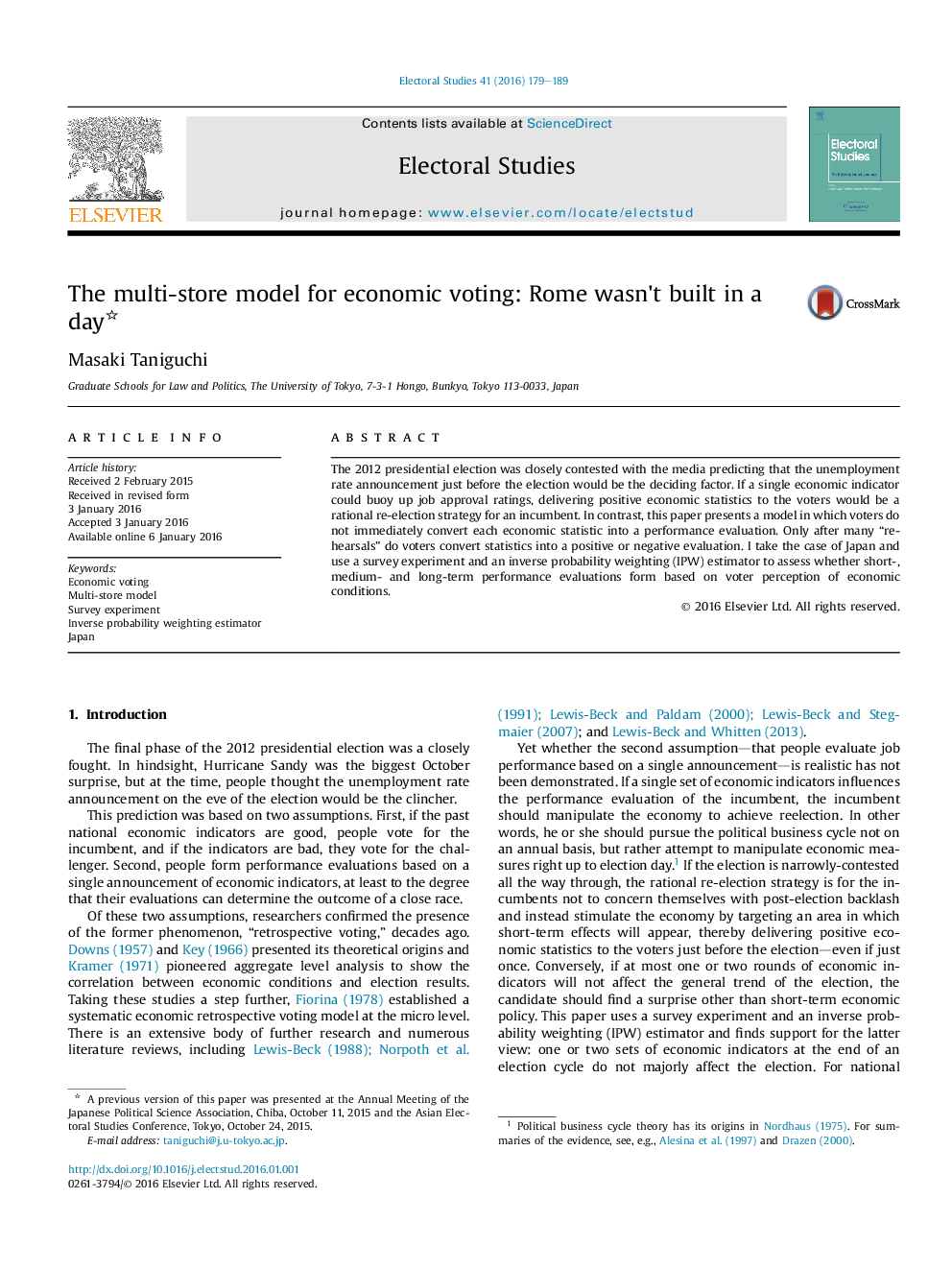| Article ID | Journal | Published Year | Pages | File Type |
|---|---|---|---|---|
| 7463696 | Electoral Studies | 2016 | 11 Pages |
Abstract
The 2012 presidential election was closely contested with the media predicting that the unemployment rate announcement just before the election would be the deciding factor. If a single economic indicator could buoy up job approval ratings, delivering positive economic statistics to the voters would be a rational re-election strategy for an incumbent. In contrast, this paper presents a model in which voters do not immediately convert each economic statistic into a performance evaluation. Only after many “rehearsals” do voters convert statistics into a positive or negative evaluation. I take the case of Japan and use a survey experiment and an inverse probability weighting (IPW) estimator to assess whether short-, medium- and long-term performance evaluations form based on voter perception of economic conditions.
Related Topics
Social Sciences and Humanities
Social Sciences
Geography, Planning and Development
Authors
Masaki Taniguchi,
